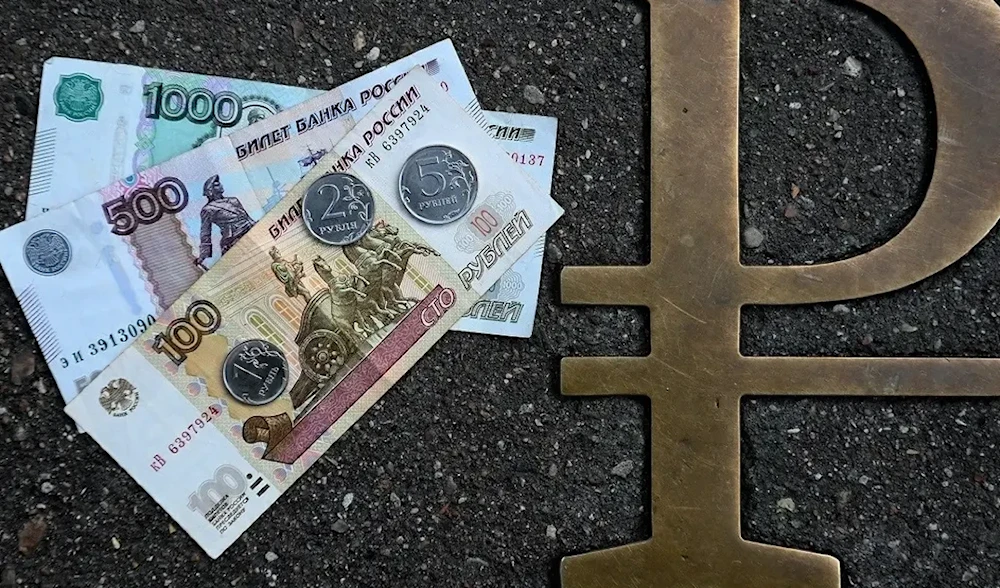IMF warns of ramifications of Russian asset seizure
Alfred Kammer, the director of the IMF's European Department, stresses the necessity of legal backing for any actions to seize Russia's frozen assets, as it could risk impacting the global financial system.
-

This picture, taken on August 13, 2021, in Moscow, shows Russian ruble coins and banknotes pictured next to a Russian ruble sign. (AFP)
Alfred Kammer, the director of the IMF European Department, emphasized the importance of ensuring legal justification for any actions aimed at seizing Russia's frozen assets to prevent potentially undermining the global financial system.
Since the onset of the war in Ukraine in 2022, the EU and other G7 nations have collectively frozen around $300 billion in assets belonging to the Russian central bank. Among these assets, approximately €196.6 billion is being held by the Belgium-based clearinghouse Euroclear. What is significant, is that over the past year, these funds have accrued nearly €4.4 billion in interest.
"With regard to the seizure of Russia’s assets … our view is that is something for the relevant jurisdictions and courts to determine and to decide," Kammer told a press briefing on Friday, adding, "From our side, what is important is that whatever action is taken, that the implications of the functioning of the international monetary system are being taken into account."
Kammer, reiterating the IMF’s previous statements on the issue, recalled IMF managing director Kristalina Georgieva’s words, that "one needs to be wary of unintended consequences" of such actions.
"And again, this is the issue of a multilateral rules-based system and a well-functioning international monetary and financial system, which we all should be respectful for, because it delivered… prosperity over last decades," Kammer reaffirmed.
It is worth noting, this comes after the Financial Times reported that the US has suggested issuing tens of billions of euros in debt to Ukraine, backed by potential revenues earned by Russian state assets that have been blocked by Western countries.
G7 to keep Russian assets frozen until reparation to Ukraine paid
Earlier, and in a statement after meeting on April 17-18 on the sidelines of the International Monetary Fund and World Bank spring meetings in Washington, DC, the G7 finance ministers and central bank governors stated their determination to keep Russia's assets frozen until it pays Ukraine war reparations.
"We reaffirm our determination to ensure that Russia pays for the damage it has caused to Ukraine. Russia's sovereign assets in our jurisdictions will remain immobilized until then, consistent with our respective legal systems," the G7 officials said.
The European Union's proposals to direct windfall profits from Russia's frozen assets for Ukraine has been welcomed by the G7, in addition to initiatives by the UK and the US to stop the trade of new Russian metals on their global metal exchanges.
"We will continue working on all possible avenues by which immobilized Russian sovereign assets could be made use of to support Ukraine, consistent with international law and our respective legal systems, with a view to update our Leaders ahead of the Apulia Summit in June," the statement noted.
Read more: Ukraine settlement basis on which Russia agrees needs discussion: FM

 3 Min Read
3 Min Read









